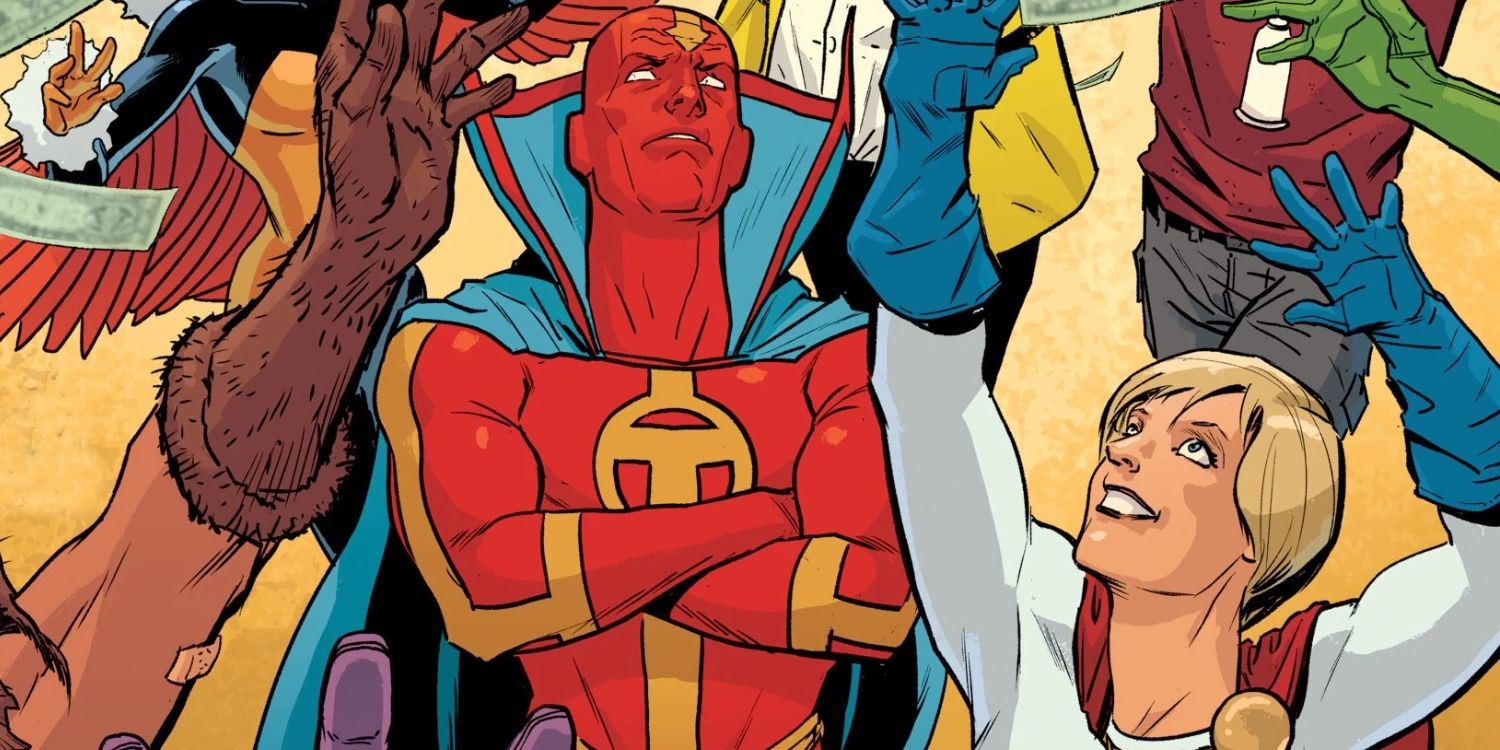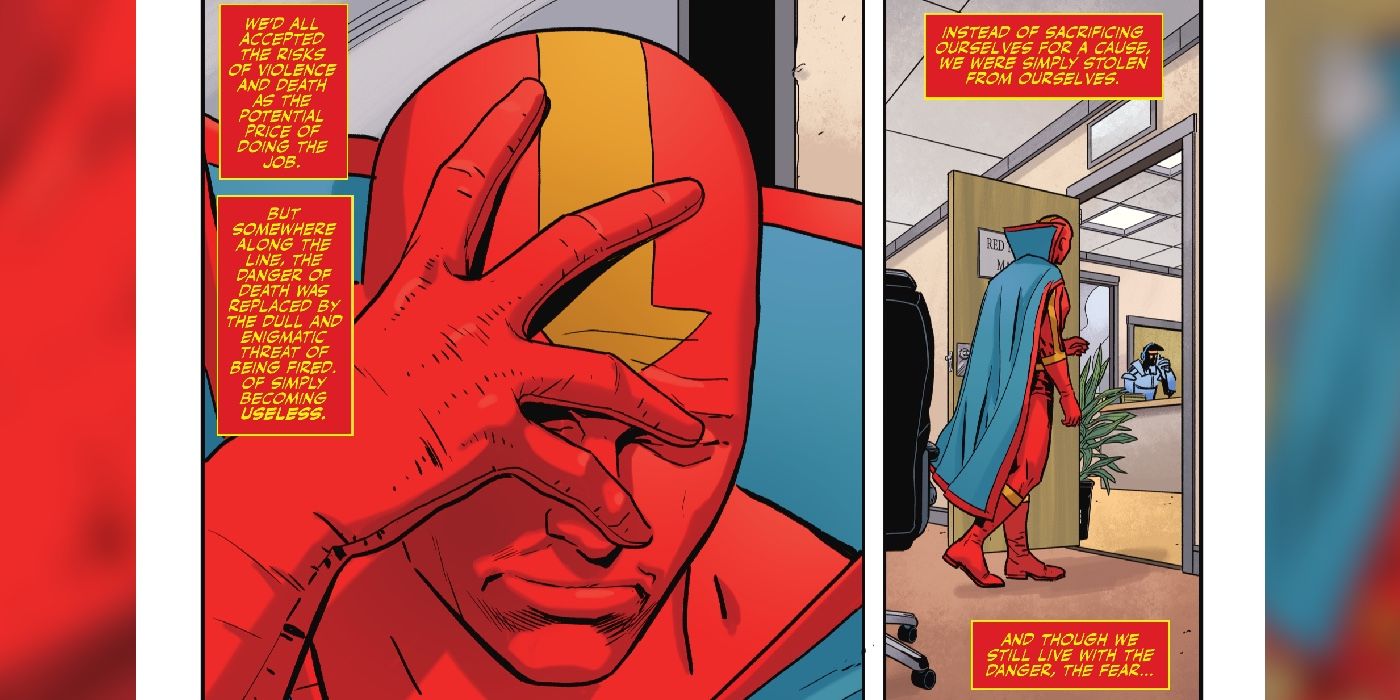Warning: Spoilers for One Star Squadron #3!
When it comes to being a hero in DC Comics, there are more than enough heroic duties to go around, but where DC’s C-list heroes are concerned, fighting supervillains is nothing compared to the slow, entropic death of who they are as individuals. Red Tornado, Power Girl, and the rest of the heroes at HEROZ4U do what they can to get by, but getting fired and being forgotten is something they can’t get over.
Touched on in One-Star Squadron #3, by Mark Russell and Steve Lieber, this series has focused on the employees of a gig-based business called HEROZ4U, which specializes in taking the menial jobs that the big heroes like Superman, Batman, or Wonder Woman would never be caught dead doing. Following the trials and tribulations of heroes that have fallen out of the public eye or are simply ones that were never up to snuff, to begin with, One-Star Squadron slows things down to give readers a glimpse of a different side of the DC Universe that's usually glossed over amongst all the big action and sweeping multiversal crises.
Trying to help out a HEROZ4U member named Minute Man during a time when he’s struggling to hold down a job, Red Tornado has a heart-to-heart with the guy about the fact that Red should probably fire him after he was kicked out of a Comic-Con convention during his last assignment. Understanding that sometimes people need to realize their worth, Red gives the desperate Minute Man one last chance to take a gig for a local nautical supply shop, and it’s here where fans are shown the relatable threats that these heroes face when saving the day is no longer an option.
Spurred to internal thought after this conversation, Red Tornado understands that working for HEROZ4U wasn’t “…what any of them had in mind when they became a hero.” Admitting that while they’d all “accepted the risks of violence and death as the potential price of doing the job,” the fact that being real superheroes has now been replaced with “…the dull and enigmatic threat of being fired. Or simply becoming useless,” Red Tornado directly shines a spotlight on what these heroes have to deal with regularly. Going on to say, “Instead of sacrificing ourselves for a cause, we were simply stolen from ourselves,” Red Tornado further confirms that the danger might still be there, but the fear they have isn’t exactly the kind they hoped for.
By taking a peek into how heroes below the Justice League line live, One-Star Squadron shows that just because someone is a hero, it doesn’t mean their lives or the threats they face are any less real or dangerous. And although it’s a sad thought when compared to the glamor and recognition “real” heroes in the DC Universe receive, Red Tornado and his fellow co-workers facing more relatable and even existential problems is an important facet of superhero life that needs further addressing, with One-Star Squadron poised to explore this dilemma as it moves into the back half of its limited run.
So while Red Tornado and his employees are still valid heroes even without fighting a supervillain every day, their mental health is taking a hit the longer they try — and fail — to break free of the monotony of “regular” life. DC Comics’ C-list heroes will always be there to save the day, but who will save them from being regulated to the dustbin of the superhero community once their heroic duties are over?


